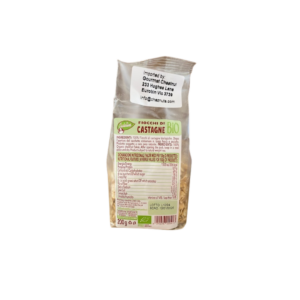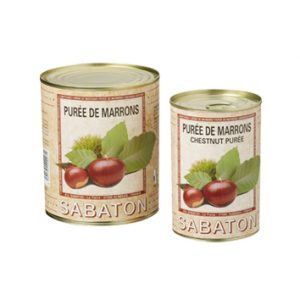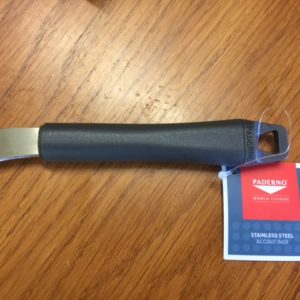How much does each chestnut tree yield?
This is actually a very hard question to answer as it depends on so many factors. Variety, growing conditions, irrigation will all play a factor. As a rule of thumb though you should expect around 20 kg off a tree planted 10 years ago.
How long does it take from planting a chestnut tree to final, saleable product?
The trees are planted as grafted trees so they are already 2 years old when planted. Then they take another 5 years before they start to bear any saleable volume of nuts. However, once they start they increase production dramatically each year as the tree grows until it reaches around 15 years old and then the yearly increase reduces.
How do you recognise good quality chestnuts?
It’s difficult to determine quality just by looking at the nuts. Some nuts can look absolutely beautiful but when you try to peel them they are impossible to peel and their flavour is very poor. However, you can determine whether a nut is fresh or not by it’s sheen and how hard it is. Fresh nuts have a gloss to them and are very hard. Nuts that are not very fresh have dried out and lost their gloss and when squeezed the outer leathery shell can be pushed against the nut inside. It’s best to purchase nuts as fresh as possible.
When are fresh chestnuts in season?
Chestnuts are harvested in autumn. In Australia their season is from mid March to mid July. Fresh chestnuts can be stored in the refrigerator for a short time after purchase. Our vacuum-packed ready to use chestnuts are available all year round and can be stored in the cupboard until needed.
How to Roast Chestnuts
There are many ways to roast a chestnut but this is our favourite.
First, the chestnut needs to be cut. As chestnuts are almost 50% water if you don’t cut the outer shell to enable the steam generated during cooking to get out they end up exploding and making quite a mess. I’m sure you may have already experienced this!
We mark (cut) the nuts from one side to the other across the rounded side of the nut. When the nuts roast this cut separates and the yellow flesh can be seen – we call this the ‘smile’ and we are always happy to see our roasted chestnuts smiling at us.
Once the nuts are marked we place them under a moderately hot grill turning them occasionally. Average sized nuts will take around 15 minutes to cook and will blacken in places. Once cooked, remove and place in a bowl lined with a clean tea towel. Cover the nuts with the tea towel and let them steam gently for 5 minutes. This has the same effect as resting a joint of meat before carving. Unwrap, peel and enjoy!
What is the Nutritional Profile of Chestnuts?
Here is the approximate nutritional profiles of Australian Chestnuts including, Fresh Chestnuts, Freeze Dried Chestnuts and Roasted Chestnuts.
| Fresh Chestnuts | Dried Chestnuts | Roasted Chestnuts | |
| Moisture g/100g. | 48.2 | 12.2 | 52.1 |
| Ash g/100g. | 1.2 | 2.1 | 1.4 |
| Protein (N x 6.25) g/100g. | 3.4 | 5.2 | 3.4 |
| Fat g/100g. | 0.2 | 1.0 | 0.6 |
| Total Carbohydrate g/100g | 32.1 | 57.4 | 34.3 |
| Sugars g/100g | 3.3 | 9.6 | 3.8 |
| Energy kJ/100g | 730 | 1278 | 732 |
| Sodium mg/100g | 0.8 | 0.7 | 0.7 |
| Calcium mg/100g | 17.6 | 34.8 | 13.4 |
| Zinc mg/100g | 0.4 | 0.7 | 0.5 |
| Iron mg/100g | 0.7 | 1.0 | 0.8 |
| Potassium mg/100g | 468 | 876 | 574 |
| Dietary Fibre g/100g | 14.9 | 22.1 | 8.1 |
| Vitamin B1 mg/100g | Not tested | 0.20 | 0.28 |
| Vitamin B2 mg/100g | Not tested | 0.04 | 0.09 |
| Niacin mg/100g | Not tested | 7.39 | 1.97 |
| Vitamin C mg/100g | Not tested | Freeze Dried 53mg | 26 |
| Folic acid mcg/100g | Not tested | Not tested | 70 mcg |
What are the different sizes of chestnuts?
Australian chestnuts are graded to Australian industry sizes. These are determined by the size of the hole that the nut can fall through. However in Europe and Asia chestnuts are graded according to how many nuts there are in a kilogram.
Here are both standards
| Size | Australian Size in mm | Euorpe/Asia Pieces per kg (approx) |
| Small | < 25 mm | 130 / kg |
| Medium | 25 mm – 28 mm | 115 / kg |
| Standard | 28 mm – 32 mm | 100 / kg |
| Large 1 | 32 mm – 35 mm | 80 / kg |
| Large 2 | 35 mm – 38 mm | 70 / kg |
| Large 3 | 38 mm – 41 mm | 60 / kg |
| Large 4 | > 41 mm | 50 / kg |


